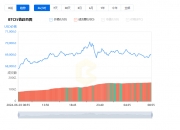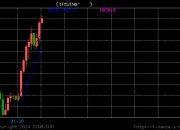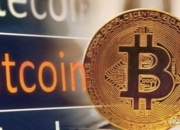2023年中央金融工作会议提出,要做好科技金融、绿色金融、普惠金融、养老金融、数字金融“五篇大文章”。2024年1月,习近平总书记在省部级主要领导干部推动金融高质量发展专题研讨班开班式上提出,要建立健全自主可控安全高效的金融基础设施体系。近年来,在数字化和央行数字货币快速发展的浪潮下,国内外主要金融基础设施都在积极尝试使用区块链技术提供数字证券服务,促进金融市场的数字化发展。目前,中国金融基础设施的相关探索已领先国际同业,具备国际对话水平。下一步,可在前期探索的基础上,进一步深化应用,推动金融高质量发展,加快金融强国建设。
In January 2024, General Secretary Xi Jinping launched a workshop on high-quality financial development for leading provincial and ministerial officials to develop a sound, autonomous, secure and efficient financial infrastructure. In recent years, in the midst of a wave of digitalization and rapid growth of central banks’ digital currencies, major domestic and foreign financial infrastructures have been actively trying to use block-chain technology to provide digital securities services and promote the digitalization of financial markets.
金融基础设施探索区块链应用的必要性
探索区块链应用,可加快金融基础设施数字化转型,满足市场多样化需求,争夺国际话语权,更好地维护金融安全。
Exploring the application of block chains can accelerate the digital transformation of financial infrastructure, meet market diversification needs, compete for international voice and better maintain financial security.
(一)探索数字化转型路径。区块链应用被普遍认为是推动数字资产发展的可行方式。金融基础设施探索区块链数字债券业务和市场机构共建区块链系统,是促进金融市场数字化转型的新路径。
(i) Exploring digital transformation pathways. Block chain applications are widely recognized as a viable way to promote the development of digital assets. Financial infrastructure explores the digital bond chain operations and the co-building of market institutions as a new path to the digital transformation of financial markets.
(二)提供多样化的市场服务。与商业机构尝试自建区块链系统相比,金融基础设施提供区块链数字债券公用平台,有利于发挥专业优势,满足市场多样化需求,节约市场运行成本。
(ii) Providing diversified market services. The financial infrastructure provides a public platform for block-chain digital bonds, compared to commercial agencies attempting to build their own block chain systems, which allows for professional advantages, meeting market diversification needs and saving market operating costs.
(三)提升债券跨境业务效率。除自贸区债券外,其他离岸债券业务存在自办发行和多级托管问题。金融基础设施提供公用的区块链数字债券服务平台,可降低市场机构自办发行的风险,缩短境外投资者的跨境结算周期,提升业务效率。
(iii) Increased efficiency of cross-border bond operations. In addition to trade-zone bonds, there are self-issued and multi-level hosting issues in offshore bond operations. The financial infrastructure provides a public block-chain digital bond service platform that reduces the risk of self-issuance by market agencies, shortens the cross-border settlement cycle for offshore investors and enhances operational efficiency.
(四)增强国际影响力和话语权。当前,国际主要金融基础设施都在积极探索区块链技术应用,尝试在区块链上开展证券交易结算业务。中国金融基础设施只有通过探索实践,具备相应支持能力,才能有国际对话的平等权利,参与潜在的国际合作。
At present, the main international financial infrastructure is actively exploring the technical application of block-chain technologies and attempting to carry out securities-trading settlements on block-chains. China’s financial infrastructure can only have equal rights to international dialogue and engage in potential international cooperation by exploring practices and having the corresponding support capabilities.
(五)更好地维护金融安全。区块链技术应用可增强市场信息的穿透性,强化穿透监管,维护金融安全。金融基础设施探索区块链数字债券,可做好数字货币应用于债券市场的技术储备,增强跨境结算系统的自主可控能力。
(v) Better maintenance of financial security. The application of block-chain technology enhances the penetration of market information, strengthens penetrating regulation and maintains financial security. Financial infrastructure explores block-chain digital bonds that can provide a technological reserve for digital currency applications in bond markets and enhances the autonomous control of cross-border settlement systems.
我国金融基础设施探索区块链应用的实践
(一)中国内地。以中央结算公司为代表的中国金融基础设施,于2018年就开始探索研究区块链技术,致力于为市场提供更加安全高效、丰富多样的服务。先后将区块链技术应用于信贷资产流转、企业债券受理审核和数字债券发行等业务领域。
China’s financial infrastructure, represented by the Central Clearing Company, began to explore block chain technology in 2018 and is committed to providing more secure, efficient and diversified services to the market. The block chain technology has been applied to business areas such as credit asset flow, corporate bond clearance and digital bond issuance.
2020年,银登信贷资产区块链平台利用区块链技术信息溯源、信息存证、多点协同的技术特点,满足业务发展对资产穿透登记的要求。通过搭建信贷资产区块链平台,扩大有效信息的共享范围,进一步提升了银行之间的互信。企业债券区块链平台基于区块链技术不可篡改、公开透明、安全可靠的特点,实现各环节的文件存证、信息溯源,加强市场公信力,为监管部门和市场机构打造了公开透明、数字化、智能化的企业债券服务平台。
In 2020, the Silverton credit asset block chain platform met business development requirements for asset penetrating registers, using the technical characteristics of block chain technical information traceability, information documentation, multi-point synergies. It further enhanced bank-to-bank trust through the establishment of a credit asset block chain platform that expanded the sharing of effective information. The enterprise bond block chain platform was based on the inexorable, transparent, secure and reliable characteristics of block chain technology, enabled documentation of links, information traceability, enhanced market credibility, and created an open, digital, and intelligent corporate bond service platform for regulators and market institutions.
2021年,中央结算公司探索使用区块链支持债券发行业务,形成区块链数字债券发行业务方案和系统原型,利用区块链的加密算法、隐私保护、身份识别、智能合约等技术优势,提高债券发行业务的透明度和效率,助力强化穿透监管。
In 2021, the Central Clearing Company explored the use of block chains to support bond issuance operations, form business programmes and prototype systems for block chain digital bond issuance, take advantage of the technical advantages of block chain encryption algorithms, privacy protection, identification, smart contracts, etc., to enhance transparency and efficiency in bond issuance operations and help strengthen penetrating controls.
2022年初,16个部委联合发文,将中央结算公司列为国家区块链创新应用试点。同年11月,中央结算公司推出国内首个自主可控的区块链数字债券发行公用平台。平台采用联盟链,实施中心化管理,并和市场机构共建共治;技术上自主开发,支持全节点、轻节点和无节点接入,支持链上链下、同构链跨链、异构链跨链等互操作;功能上支持债券发行全流程业务。截至2023年末,已成功支持债券发行规模845.4亿元,发行的券种包括金融债券、企业债券和自贸区债券,系统应用填补了境内金融基础设施支持离岸债券发行业务的空白,在促进数字经济和实体经济融合发展方面发挥重要作用;和2家代表性机构实现了跨链落地应用,具备支持监管能力;在探索实践中,中央结算公司总结形成了《中债区块链数字债券发行平台规范》和《中债区块链数字债券发行平台接口规范》两项企业标准,其中一项是区块链数字债券领域的首个标准,实现了优秀经验做法的可复制、可推广;开展了区块链支持债券生命周期业务、数字货币结算数字债券等课题研究。
At the beginning of 2022, 16 ministries issued a joint communication to include the Central Settlement Company as a pilot for innovative application of the country’s block chain. In November of the same year, the Central Settlement Company launched the first autonomous digital bond distribution platform in the country’s block chain. The platform adopted a coalition chain, implemented centralized management and co-manage with market institutions; technically autonomously developed, supported the integration of the entire node, light nodes and nodes into the economy, supported interoperable operations such as the interlinkage of the chain, the interlinkage of the same chain and the heterogeneous chain; functionally supported the full process of bond issuance. By the end of 2023, the Central Clearing Company had successfully supported the issuance of bonds of $8,454 million in size, issued bonds including financial bonds, corporate bonds and trade-zone bonds, and the system had filled gaps in domestic financial infrastructure to support offshore bond issuance operations and played an important role in promoting the integration of the digital economy; and two representative institutions had implemented cross-chaining applications with regulatory capabilities.
(二)中国香港。香港地区也在积极探索区块链数字债券业务。2021年,香港金管局和国际清算银行合作探索区块链创新应用,开展代币化绿色债券的模拟测试。2022年,香港金管局探索使用区块链技术实现债券代币和现金代币的券款兑付(DVP)结算。
(ii) Hong Kong, China. The Hong Kong region is also actively exploring block chain digital bond operations. In 2021, the Hong Kong Monetary Authority and the Bank for International Settlements cooperated in exploring block chain innovations and conducting simulation tests for monetized green bonds. In 2022, the Hong Kong Monetary Authority explored the use of block chain technology to settle bond and cash in exchange bonds (DVPs).
2023年,香港金管局支持香港特区政府发售代币化绿色债券,为全球首批由政府发行的代币化绿色债券。在代币化债券发行后,探索使用区块链支持二级市场买卖交易和付息兑付业务。同年8月,香港金管局发布《香港债券市场代币化》报告,建议普及债券代币化发行,推动广泛应用。
In 2023, the Hong Kong Monetary Authority supported the Hong Kong Hong Kong Government in the sale of the currency-based green bonds, the first government-issued green-currency bonds in the world. Following the issuance of the currency-based bonds, it explored the use of block chains to support transactions and interest payments in secondary markets. In August of the same year, the Hong Kong Monetary Authority issued a report on the monetization of the Hong Kong Bond Market, recommending that the issue of currency-based bonds be made widely available and promoted for wider application.
其他国家金融基础设施探索区块链的相关实践
(一)美国。2020年,美国证券存管与清算公司应用区块链技术验证代币化股票业务,区块链底层平台采用私有链,由多家市场机构和技术公司联合开发,主要用于验证区块链技术支持股票发行、清算、结算等业务的可行性。代币化股票平台与传统股票结算平台并行,使用平行账簿模式,目的是为用户提供多样化选择。交易订单由市场参与者通过客户节点发起,在代币化股票平台上处理后,将信息传输到传统业务系统进行结算。交易资金使用传统货币,交易记录以传统业务系统为准。
(i) United States. In 2020, the US Securities Deposit and Liquidation Corporation applied block chain technology to validate a monetized stock operation, using a private chain at the bottom of the block chain platform, which was developed jointly by a number of market agencies and technology companies and was used mainly to verify the feasibility of block chain support for stock issuance, liquidation, settlement, etc. The monetized stock platform, in parallel with the traditional stock clearing platform, uses a parallel booking model designed to provide diversification options for users. Trade orders were initiated by market participants through client nodes, and after processing on the monetized stock platform, the information was transferred to the traditional business system for settlement.
(二)欧洲。1.欧洲清算银行。2021年,欧洲清算银行牵头联合市场机构在区块链上模拟验证使用央行数字货币结算法国国债。底层平台为私有链,测试范围包括债券发行、交易结算、回购和利息支付等。DVP结算指令通过货币通证与证券通证交换实现。货币通证发行后,被转移到参与成员的钱包中,用于结算一级和二级市场的证券交易。试验证明,DVP结算基于通证模式与基于账户模式一样有效。
(ii) Europe. 1. European Clearing Bank. In 2021, the lead joint market agency of the European Bank for Settlement simulated the use of central bank digital currency to settle French national debt on a block chain. The bottom platform is a private chain, with tests ranging from bond issuance, transaction settlement, buy-back and interest payments. DVP settlement instructions are implemented through the exchange of currency passes with securities.
2.明讯银行。为配合德国数字证券法出台,支持债券数字化,明讯银行推出区块链数字债券平台计划,拟覆盖债券的完整价值链,包括发行、托管、结算和资产服务。平台包括四个模块:一是数字债券发行模块;二是基于私有链的中央登记托管模块;三是基于公有链的私募证券“去中心化”服务模块,此模块暂未推出;四是信息传递通道模块。2022年12月,德国复兴信贷银行通过明讯银行的平台发行了德国数字证券法颁布以来的首单数字债券。
In line with the German Digital Securities Act, which supports the digitization of bonds, the Bank has launched a block-chain digital bond platform to cover the full value chain of bonds, including issuance, hosting, settlement and asset services. The platform consists of four modules: a digital bond issuance module; a central registration hosting module based on the private chain; a private chain-based “decentralized” service module, which has not yet been launched; and an information channel module. In December 2022, the German Bank for Reconstruction and Credit released the first single digital bond since the promulgation of the German Digital Securities Act.
3.瑞士交易所。瑞士交易所联合瑞士央行、国际清算银行,探索在区块链平台上运用不同类型央行货币结算数字证券。瑞士交易所同时使用数字货币和传统货币进行结算测试。使用数字货币结算时,证券买方将传统货币兑换为数字货币,结算完成后数字货币直接转移到数字证券卖方的传统货币账户。使用传统货币结算时,区块链证券结算平台与瑞士央行大额支付系统互联,即链上证券锁定成功后触发大额支付系统,资金在大额支付系统中划转,资金划转完成后,触发区块链平台将通证资产从卖方转移至买方。
The Swiss Exchange, in conjunction with the Swiss Central Bank and the Bank for International Settlements, explores the use of different types of central bank money settlement digital securities on a block-chain platform. The Swiss Exchange uses both digital and traditional currency for settlement tests. When digital currency is used, the securities buyer converts the traditional currency into a digital currency, and when the settlement is completed, the digital currency is transferred directly to the traditional currency accounts of the digital securities seller.
(三)新加坡。2016年,新加坡金管局探索区块链用于银行间市场支付和证券清算结算,探索在区块链上实现政府债券和新加坡元的DVP结算。政府债券是数字证券,与数字货币在不同链上。数字证券和数字货币分两个账本分别结算。2022年,新加坡金管局在以太坊上建立流动性资产池,纳入数字化的新加坡政府债券、日本政府债券、日元和新元,进行通证化日元和新元的实时兑换以及通证化政府债券交易结算的模拟试验。
(iii) Singapore. In 2016, the Singapore Gold Authority explored block chains for inter-bank market payments and settlement of securities, exploring government bonds and Singapore dollar DVP settlements on block chains. Government bonds are digital securities, which are settled separately from digital currencies. Digital securities and digital currencies are settled separately. In 2022, the Singapore Gold Authority established a liquid asset pool in Ether, incorporating digitized Singapore government bonds, Japanese government bonds, Japanese yen and New dollar, conducting real-time conversions of the Japanese yen and the Singapore dollar and simulations of the government bond trading settlement.
(四)跨国合作。1. 欧日央行的合作。2016年,欧洲央行和日本央行探索区块链技术在证券结算业务中的模拟验证,并提出两种结算模式。一是同一账本结算,证券和资金记录在同一账本,交易双方直接使用加密签名进行交易处理,通过共识机制对交易指令进行验证和确认,并将交易结果写入账本。二是不同账本结算,证券和资金记录在不同账本,交易双方通过数字签名和哈希时间锁定合约实现两个账本的信息交互。哈希时间锁定合约用于保证未在预定时间内完成必要流程的情况下,将证券和资金退还给原始持有人。比较而言,同一账本模式下的业务风险相对较小。
1. In 2016, the ECB and the Central Bank of Japan explored the simulation of block-chain technology in securities settlement operations and proposed two settlement models. First, the same account book, the securities and funds were recorded in the same account book, the transaction was processed directly with an encrypted signature by both parties to the transaction, the transaction instructions were validated and confirmed through a consensus mechanism, and the results of the transaction were recorded. Second, different account books were settled, securities and funds were recorded in different books, and the parties exchanged information on the two books through digital signatures and the Hashi time lock-in contract.
2. 瑞法央行的合作。2021年,瑞士央行、法国央行、国际清算银行联合市场机构一起开展数字货币结算数字证券的模拟测试,旨在使用数字瑞士法郎和数字欧元结算区块链上的股票或债券等金融工具。模拟测试的内容包括:批发型央行数字货币的发行和赎回;在传统业务平台上发行和赎回证券,并在瑞士交易所下属的数字交易所平台映射上链;在数字交易所平台上实现数字证券的DVP结算;在数字交易所平台上实现不同数字货币之间的对等支付(PVP)结算。
2. Cooperation between the Swiss Central Bank. In 2021, the Swiss Central Bank, the French Central Bank, and the Joint Market Agency of the Bank for International Settlements jointly conducted a simulation test of digital monetary settlement digital securities, with the aim of using financial instruments such as shares or bonds in the digital Swiss franc and digital euro block chain. The simulation test consisted of: wholesale distribution and foreclosure of the central bank's digital currency; issuance and redemption of securities on traditional business platforms and mapping of the digital exchange platform belonging to the Swiss Exchange; DVP settlement of digital securities on the digital exchange platform; and matching payments between different digital currencies on the digital exchange platform (PVP).
国际比较和启示
International Comparison and Apocalypse
(一)比较结论。比较看,我国金融基础设施的相关实践在业务、技术、管理、标准等方面领先于国际同业。
(i) Comparative conclusions. By comparison, our financial infrastructure practices are ahead of international counterparts in terms of business, technology, management, standards and so forth.
业务方面,我国已经实现生产应用和价值上链。我国区块链数字债券系统建设不改变业务规则,使得新技术应用和监管业务规则可以兼容;参与主体和支持券种较为丰富,参与主体包括国有商业银行、股份制银行、城市商业银行和企业,已支持的券种覆盖企业债券、普通金融债券、专项金融债券和自贸区债券,支持的债券发行规模高于国际同业。
At the operational level, we have achieved production applications and value chains. The construction of our block-chain digital bond system does not change business rules, making new technology applications and regulatory business rules compatible; participating subjects and supporting vouchers are more abundant, including State-owned commercial banks, stock-based banks, urban commercial banks and enterprises. Supported bonds cover corporate bonds, general financial bonds, special financial bonds and self-trade zone bonds.
技术方面,我国采用联盟链设计,自建平台,技术可控。我国区块链数字债券系统建设可支持多种接入方式,降低了市场机构的参与成本;通过跨链对接,提高了业务数据的交互效率;在金融基础设施外部,部署多个全节点,记录多份全量账本,增强了系统的稳健性;自主研发数据隐私保护功能、中心化管理共识机制和分离式权限控制,提高了系统的安全性。
At the technical level, we have adopted a coalition-chain design, self-built platforms, and controlled technology. The construction of our block-chain digital bond system supports multiple modes of access and reduces the cost of participation by market institutions; the interactivity of operational data is enhanced through cross-link interfaces; the security of the system is enhanced by the deployment of multiple full-volume bookings outside the financial infrastructure; and by autonomous research and development of data privacy protection functions, centralized management consensus mechanisms and separate rights controls.
管理方面,系统运营实行中心化管理下的共建共治。联盟链不改变金融基础设施的法定中央确权属性和成员准入管理权限,但通过智能合约高效实现业务流程中的共识形成。市场机构在遵守联盟治理的前提下,开展业务创新,提供有益反馈和合作监督。
On the management side, the system operates in a centrally managed, collegial manner. The alliance chain does not alter the statutory centrality of the financial infrastructure and members’ access to management, but it is efficient to achieve consensus-building in business processes through smart contracts. Market institutions, while adhering to the governance of the alliance, are innovative in their operations, providing useful feedback and cooperative oversight.
标准方面,发布了数字债券专业领域的两项标准,具有参与国际规则制定的基础。标准内容中,首次定义数字债券,提出中心化管理的联盟治理规范,明确系统建设的技术要求和性能要求,明确不同系统交互的数据标准等。通过标准建设,促进业务发展。
In terms of standards, two standards have been issued in the field of digital bond specialization, with a basis for participation in international rule-making. In the standard content, for the first time, digital bonds are defined, coalition governance norms for centralized management are proposed, technical and performance requirements for system-building are clarified, data standards for the interaction of different systems are clarified, etc. Business development is promoted through standard-building.
(二)相关启示。一是传统货币和数字货币都可支持数字证券结算业务。使用传统货币结算时,区块链系统和传统支付系统直接或者间接对接,直接对接实现价值交换,间接对接仅传输资金信息;使用数字货币结算时,区块链系统和数字货币系统直接对接,实现价值交换。
(ii) Relevant inspirations. First, both traditional and digital currencies can support digital securities settlement operations. When traditional currency settlements are used, block-chain systems and traditional payment systems interface directly or indirectly to achieve value swaps and indirectly to transmit financial information only; when digital currency settlements are used, block-chain systems and digital monetary systems interface directly to achieve value swaps.
二是区块链数字证券的运营仍需要中心化管理。区块链数字证券的系统建设、智能合约编写、技术创新、联盟治理、市场培育、风险监测、冲突解决等离不开中心化管理。在业务运行过程中,中心化管理有助于保障业务稳健、规范、高效运行,是实现有效共建共治的重要前提,也可合理权衡参与者隐私保护要求与信息透明共享,是一种集约高效模式。
In the course of business operations, central management helps to ensure business integrity, regulation, and efficient operation, which is an important prerequisite for effective co-management. It also makes a reasonable trade-off between the privacy protection requirements of participants and the transparent sharing of information, which is an intensive and efficient model.
三是区块链数字证券服务应由金融基础设施提供。国际上有个别市场化机构建立了区块链数字证券服务平台,因不具备金融基础设施资质,无法提供登记托管服务。证券在发行后仍需在金融基础设施机构登记托管。从法律方面看,只有金融基础设施能够提供数字证券的全生命周期服务。
Third, block-chain digital securities services should be provided by the financial infrastructure. Internationally, individual market-based agencies have created a block-chain digital securities service platform, which cannot provide registration hosting services because it is not qualified to do so.
四是金融基础设施提供相关服务具有显著优势。相较一般商业机构,金融基础设施建立区块链数字证券系统具有公共属性,更具规模经济效益;为市场提供集中统一的登记托管服务,可避免碎片化发展;在证券服务方面经验丰富,专业性更强;不以营利为目的,以独立第三方身份参与市场建设,公信力较高,在风险监测、争端解决等方面具有优势。
The fourth is that financial infrastructure offers significant advantages in providing related services. In contrast to commercial institutions in general, financial infrastructure has public attributes and greater economies of scale; centralized and uniform registration hosting services for markets avoid fragmentation; highly experienced and specialized securities services; non-profit participation in market-building as an independent third party; higher credibility; and advantages in risk monitoring and dispute resolution.
五是区块链系统可以与传统业务系统融合发展。国际金融基础设施正在积极探索将区块链技术应用于证券的发行、结算等领域。多个国家已证明区块链支持证券业务具有可行性,区块链系统之间或与传统系统均可有效对接,融合发展。此外,可在区块链系统中探索创新性业务功能,为传统系统提供有益补充。
The international financial infrastructure is actively exploring the application of block chain technology to the issuance and settlement of securities. Several countries have demonstrated that block chains support the viability of securities operations and that they can be effectively interfaced and integrated with traditional systems. In addition, innovative business functions can be explored in block chain systems to provide a useful complement to traditional systems.
金融基础设施深化区块链应用的思考
目前,我国金融基础设施在区块链数字债券领域的探索取得阶段性成果,但区块链系统还相对独立,应用的业务场景有待丰富。未来,可进一步拓展业务场景,促进系统互联,深化探索应用。
At present, our financial infrastructure has achieved milestones in the area of block-chain digital bonds, but the block-chain system is relatively independent, and the business landscape is yet to be enriched. In the future, the business landscape can be further expanded to promote interconnectivity and deeper exploration applications.
(一)促进区块链系统与支付系统对接。以区块链为底层技术构建的数字债券系统,可通过跨链、链上链下互操作等系统互联,兼容传统货币支付手段和数字货币支付手段。从现有的实践经验看,区块链数字债券可使用数字货币结算,也可使用传统货币结算。相比较而言,使用数字货币结算的效率更高。下一步,可考虑拓展数字人民币的应用场景至数字债券领域,在监管框架下,探索使用数字货币结算数字债券。
(i) Facilitating the interface between block-chain systems and payment systems. Digital bond systems built from block-chain to bottom technology can be interconnected through systems such as cross-chains, interoperable under-chains, and compatible with traditional currency payment instruments and digital currency payment instruments. From existing practice, block-chain digital bonds can be settled either in digital currency or in traditional currency. Compared with the more efficient use of digital currency settlements. Next, consideration could be given to expanding the application of digital renminbi to digital bonds, and exploring the use of digital currency to settle digital bonds under the regulatory framework.
(二)实现区块链系统和传统业务系统互操作。区块链数字债券发展初期,需要市场机构的账户信息从传统系统导入区块链系统,支持数字债券业务开展,也需要将区块链系统的债券登记信息导入传统业务系统,确保业务数据的完整性,支持业务统计和监管。在未来一段时间,债券市场的业务运营和监测仍将以传统业务系统为主,区块链数字债券系统作为重要补充。因此,区块链数字债券系统应实现和传统业务系统互操作,保持持续发展的生命力和活力。
(ii) Interoperating of block-chain systems and traditional business systems. The initial development of block-chain digital bonds requires that account information from market agencies be imported into block-chain systems from traditional systems to support digital bond operations, and that bond-registry information from block-chain systems be imported into traditional business systems to ensure the integrity of business data and support business statistics and regulation. For some time to come, the operations and monitoring of bond markets will continue to be dominated by traditional business systems, with the sector-chain digital bond system as an important complement.
(三)将区块链系统作为创新业务的试验载体。债券市场高质量发展离不开创新业务的探索。为保持传统业务系统的安全和稳定,创新性、探索性、不确定的业务,可在区块链数字债券系统上先行先试。区块链系统是天然的优质试验田。一方面,分布式记账模式下,可在多个节点部署全量账本,系统不稳定时容易数据恢复。另一方面,区块链系统和市场机构共商共建,自然形成了创新业务联合探索的联盟。
(iii) Use of block chain systems as a pilot vehicle for innovative operations. The high-quality development of bond markets requires the exploration of innovative operations. In order to maintain the security and stability of traditional business systems, innovative, exploratory and uncertain operations can be tested first on the block chain digital bond system. The block chain system is a natural, high-quality test field. On the one hand, full bookings can be deployed at multiple nodes under a distributed accounting model, which makes it easy to recover data when the system is unstable. On the other hand, the block chain system and the market institutions are jointly established and naturally form a coalition for joint exploration of innovative operations.
(四)将区块链系统作为传统业务系统的重要备份。区块链系统为保障业务连续性提供了更多选择。在极端情况下,当传统债券业务系统出现不稳定或者暂时不可用时,区块链数字债券系统可作为备用系统,保障业务连续不中断。区块链系统和传统业务系统互为补充、协同发展,可以更好地维护债券市场安全稳健运行。
(iv) The block chain system is used as an important backup for traditional business systems. The block chain system provides additional options for ensuring business continuity. In extreme cases, the block chain digital bond system can be used as a back-up system to safeguard business continuity when the traditional bond business system is unstable or temporarily inoperable.
(五)探索“通证+账户”的融合记账体系。传统债券采用账户体系,以客户为基本单位,将相关债券要素与持有人建立对应关系。区块链数字债券采用通证体系,以通证为基本单位,相关记录加密处理且不可篡改。账户体系在查询方面更具效率,通证体系在信息透明性、防篡改等方面更具优势。区块链数字债券可考虑融合两种记账模式,在区块链系统内部记账采用通证体系,在用户查询功能中设置账户体系。
(v) Explore an integrated accounting system for “passports + accounts”. Traditional bonds use a customer-based account system to match the bond elements with the holder. Block chain digital bonds use a pass system, which is used as the base unit, and the records are encrypted and not subject to tampering. Accounts systems are more efficient in terms of querying, and they have a greater advantage in terms of transparency of information, anti-podification. Block chain digital bonds could consider combining two modes of record keeping, using a pass system for recording within the block chain system and setting up an account system within the user query function.
(六)通过标准体系建设促进市场统一规范发展。区块链数字债券在国内外都处于探索试验阶段,相关的专业术语、业务逻辑、技术平台等缺乏规范标准。金融基础设施作为系统提供机构和中心化管理机构,在探索实践中应总结提炼,推动建立相关标准体系,促进市场统一规范发展,也为参与国际规则制度奠定基础。
(vi) Promotion of market harmonization and regulatory development through standard-system-building. Block-chain digital bonds are at a pilot stage, both at home and abroad, and there is a lack of regulatory standards for related professional terminology, business logic, technology platforms, etc. Financial infrastructure, as a system-provider and centralized regulatory body, should be summed up in practice to promote the establishment of a system of standards, promote the development of uniform market norms, and lay the foundation for participation in the international rule system.
(七)将区块链系统作为维护国家金融安全的抓手。探索区块链数字债券使用数字货币结算,应用于跨境结算场景,则有可能提供新的跨境结算模式,有利于破除现有跨境人民币结算受制于其他信息传输渠道的限制,探索建立人民币跨境应用安全便捷通道,更好地维护国家金融安全。
(vii) Use the block chain system as a catcher for national financial security. The exploration of block chain digital bonds, using digital currency settlements for cross-border settlement scenarios, has the potential to provide a new model of cross-border settlement that would facilitate the removal of existing cross-border renminbi settlements from other information transmission channels, and explore the establishment of secure and easy access to the currency for cross-border application to better safeguard the country’s financial security.
运用区块链促进国际金融基础设施互联互通
习近平总书记在省部级主要领导干部推动金融高质量发展专题研讨班开班式上提出,要加强境内外金融市场互联互通,提升跨境投融资便利化水平,积极参与国际金融监管改革,守住开放条件下的金融安全底线。境内外金融基础设施之间的互联互通是实现金融市场互联互通的重要技术支撑。构建自主可控的证券跨境交易结算体系,有助于统筹金融发展和金融安全。
The Secretary-General of Xi proposed, at the opening of a workshop on high-quality financial development for leading officials at the departmental level, the strengthening of financial market connectivity within and outside the country, the enhancement of cross-border access to finance facilitation, active participation in international financial regulatory reforms, and the maintenance of financial security floors in open conditions. Interconnectivity between domestic and foreign financial infrastructure is an important technical support for financial market connectivity. The development of an autonomous, manageable system for clearing cross-border securities transactions will help to integrate financial development and financial security.
为防范跨境支付领域的金融制裁,我国央行联合阿联酋央行、泰国央行、香港金管局使用区块链技术开展多边央行数字货币桥项目,构建自主可控的新型跨境支付基础设施,在链上成功完成真实货币互换。
In order to guard against financial sanctions in the area of cross-border payments, our Central Bank, in conjunction with the Central Bank of the United Arab Emirates, the Central Bank of Thailand and the Hong Kong Monetary Authority, has launched a multilateral central bank digital currency bridge project using block-chain technology to build a new, autonomous and controlled cross-border payment infrastructure and successfully complete real currency swaps on the chain.
多边央行数字货币桥项目在“款”的层面实现了自主可控,但在“券”的层面,需要构建自主可控的国际中央证券存管体系(ICSD)。当前的ICSD主要由个别国家级的金融基础设施主导建立,主权意志较强,对其他参与国而言不可控因素较多,不利于国际金融基础设施之间的互联互通。从维护金融开放的安全角度出发,可考虑运用区块链技术,构建多边协作、共治共享、政治中立的分布式ICSD。
The MCB Digital Currency Bridge project has achieved autonomy at the “money” level, but at the “bull” level, there is a need to build an autonomous international central securities deposit system (ICSD). Currently, ICSD is dominated by individual country-level financial infrastructure, with greater sovereign will, which is more uncontrollable for other participating countries, to the detriment of interconnectivity between international financial infrastructure.
分布式ICSD构想图

注:RTGS指各国的大额支付系统,CBDC跨链支付指数字货币跨境支付系统。
分布式ICSD是一套各国登记托管机构同步记账的协同机制。在不修改各国法律的条件下,通过区块链技术,保障各国登记托管机构的账本一致,实现证券的跨境交易结算,提高资本市场的开放水平。具体实现方式是:各国的登记托管机构都以共识节点的方式接入国际互联互通平台,实现各国内部登记托管系统和国际互联互通平台对接。在开展跨境证券交易结算时,业务发起国的登记托管机构以标准报文形式向国际互联互通平台发起请求,国际互联互通平台完成指令处理并同步更新所有共识节点账本,同时将响应结果反馈给发起系统,发起系统进行内部数据处理(见图)。
Distributed ICSD is a coordinated mechanism for synchronized recording of accounts by national registry custodians. Without amending national laws, a block chain technology is used to guarantee consistency in the books of national registries, achieve cross-border transaction settlement of securities, and increase the openness of capital markets. This is achieved by providing access to international connectivity platforms by national registry custodians in a consensus node and interlinking internal registry hosting systems and international connectivity platforms. In the context of cross-border securities transaction settlements, the registry custodians of the country where the operations are initiated initiate requests to the International Connectivity Platform in the form of standard communications, and the International Connectivity Platform completes the processing of instructions and synchronizes the updating of all consensus node books, while feeding the response to the launch system and initiating internal data processing for the system (see figure).
在数字货币高速发展、央行数字货币桥已成功实践的背景下,还可考虑将国际互联互通平台与数字货币跨境支付系统对接,在“券”和“款”两方面实现跨境金融安全闭环,共同促进金融开放,维护金融安全。
In the context of the high rate of digital currency development and the successful practice of the central bank digital currency bridge, consideration could also be given to docking international connectivity platforms with digital currency cross-border payment systems, achieving cross-border financial safety and security in terms of “bulls” and “moneys”, and jointly promoting financial openness and maintaining financial security.
(作者唐彬为西南财经大学中国金融研究院博士生;陈森为中央结算公司中债研发中心专家)
(author Tang Bin is a Ph.D. student at the China Institute of Finance, Southwest University of Finance and Finance; and Chen Sen is an expert at the Central Clearing Company's Debt Research and Development Centre)
主要参考文献:
①穆长春.顺应技术演进和经济发展趋势 积极推进以我为主的法定数字货币[J].旗帜,2020(11). ②狄刚.区块链在数字金融技术体系中的发展与挑战[J].信息安全与通信保密,2021(01). ③姚前.法定数字货币的经济效应分析:理论与实证[J].国际金融研究,2019(01). ④唐彬.以数字化转型推动金融基础设施高质量发展[J].债券,2023(12). ⑤冯源,陈森,杜泽夏.探索建立区块链数字债券制度规范[J].债券,2023(02).




















发表评论